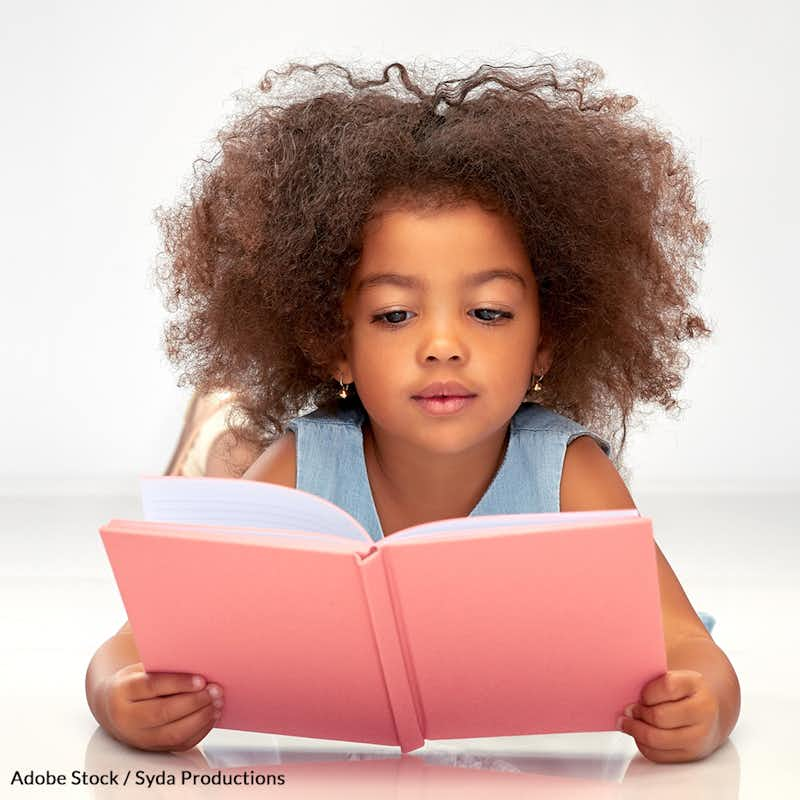Save Our Children From The Literacy Crisis
3,333 signatures toward our 50,000 Goal
Sponsor: The Literacy Site
Not every child thrives with distance learning. Demand federal support for reading programs to avoid a literacy crisis!

As COVID disruption put many educational operations on pause, it's left our children facing an unprecedented literacy crisis.
Distance learning puts some children at a disadvantage. Hit hardest those who were already marginalized, including 773 million non-literate adults and young people — and 617 million children and adolescents who were failing to acquire basic reading and numeracy skills even before the crisis1.
When our children return to school, will they be able to thrive?
Low literacy perpetuates across generations. The greatest single indicator of a child's academic success is the educational level of his/her mother2. If a parent can't read, the child starts school at a disadvantage. Then, once the child is in school, the parent is unable to help with homework. There is also a link between low literacy and crime, as 75% percent of adults incarcerated in state prisons lack a high school diploma or have low literacy skills.
The process of dropping out begins with a loss of interest in middle school, often triggered by retention in grade that, in a great many cases, is the result of not being able to read proficiently as early as fourth grade3.
Reading on grade-level by the end of third grade is one of the most critical milestones in education. Studies show that 74% of 3rd graders who read poorly still struggle in ninth grade, and third grade reading scores can predict a student's likelihood to graduate high school.
Children who do not read proficiently by the end of third grade are four times more likely to leave school without a diploma than proficient readers. While those with the lowest reading scores account for only a third of students, this group accounts for more than 63% of all children who do not graduate from high school4.
Comer Yates, Renée Boynton-Jarrett and Maryanne Wolf propose two promising options to mitigating this literacy crisis:
First, we must change our assumptions on how young children learn. Advances in brain science make it clear that we must teach every child "to listen" rather than demand they "be quiet." We must make space for vulnerability, support, agency, and healing to help children build the brain capacity to learn5.
Second, we must equip our teachers with the tools necessary to be part of the fight against this cycle of injustice. Elementary and pre-K educators need the social-emotional skills and the necessary training in the science-backed explicit instruction every child needs through 3rd grade to read deeply5.
Sign the petition below and demand our federal government support programs that help our children overcome the barriers to literacy that the COVID pandemic has worsened.
- UNESCO (14 September 2020), "Literacy teaching and learning in the COVID-19 crisis and beyond at heart of the International Literacy Day."
- The Literacy Center (2021), "Why Literacy Matters."
- The Annie E. Casey Foundation (1 January 2010), "Early Warning! Why Reading by the End of Third Grade Matters."
- Donald J. Hernandez, Professor, Department of Sociology Hunter College and the Graduate Center, City University of New York and Senior Advisor, Foundation for Child Development, The Annie E. Casey Foundation 2012), "How Third-Grade Reading Skills and Poverty Influence High School Graduation
- Comer Yates, Renée Boynton-Jarrett & Maryanne Wolf, EducationWeek (23 March 2021), "The Coming Literacy Crisis: There's No Going Back to School as We Knew It."
The Petition:
To the United States Secretary of Education,
The distance learning methods schools have adopted during the COVID pandemic have put many children at a disadvantage. Parents are left wondering not only if their children will be safe when they return to school, but whether or not they will be able to thrive.
The fact is, 773 million non-literate adults and young people — two-thirds of whom are women and 617 million children and adolescents were failing to acquire basic reading and numeracy skills even before the pandemic. This oncoming crisis of literacy could leave lasting scars on our country's economy, legacy, and families.
Low literacy becomes perpetuates across generations. The greatest single indicator of a child's academic success is the educational level of his/her mother. If a parent can't read, the child starts school at a disadvantage. Then, once the child is in school, the parent is unable to help with homework. There is also a link between low literacy and crime, as 75% percent of adults incarcerated in state prisons lack a high school diploma or have low literacy skills.
There are two promising options to mitigating this literacy crisis, both which I implore you to support in your appointment as Secretary of Education:
First, we must change our assumptions on how young children learn. Advances in brain science make it clear that we must teach every child "to listen" rather than demand they "be quiet." We must make space for vulnerability, support, agency, and healing to help children build the brain capacity to learn.
Second, we must equip our teachers with the tools necessary to be part of the fight against this cycle of injustice. Elementary and pre-K educators need the social-emotional skills and the necessary training in the science-backed explicit instruction every child needs through 3rd grade to read deeply.
This crisis of literacy could hurt our country far more than foreign attacks ever could. I demand you stand up for our children and the future of our country. Support youth reading programs in schools, and give teachers the resources they need to help children learn to read!
Sincerely,
 Welcome Back! Log In to Continue
Welcome Back! Log In to Continue